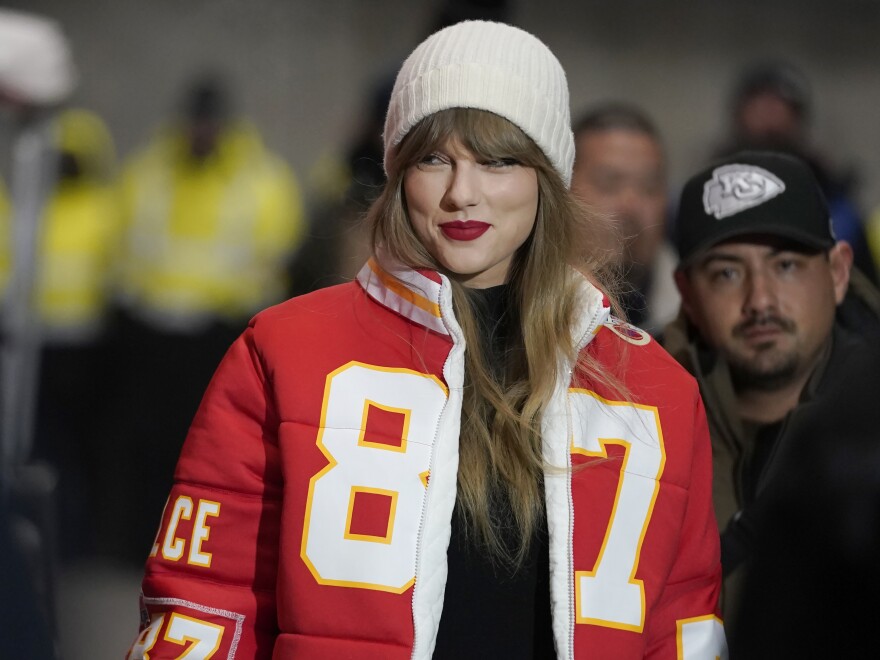Concert tickets, Uber Eats, car dealerships, resorts and airline tickets all have one thing in common: extra fees that pop up in the purchasing process.
The White House started drawing attention to these costs it calls "junk fees" in 2022, and on Thursday, President Biden is expected to shine a spotlight on junk fees for a second year in a row in his State of the Union address.
The speech is one of the most watched addresses the president gives. That means it's a key moment for Biden to try to reach voters on the issue of the economy, where he has struggled with voter skepticism.
Recent polls show people feel better about the economy now than they did a few months ago, but they're not giving Biden the credit for it. Voters also perceive the economy was better under former President Donald Trump.
The White House hopes taking on junk fees will help win over voters.
"These things, they make people mad," an administration official told NPR. The official was not authorized to speak publicly ahead of the speech. "We're really able to strike a chord with something that people already feel, but they weren't necessarily thinking that anyone could do anything about it."
"[Biden's] not saying junk fees are bad — period," the official said. "He's using it to tell the broader story about competition and the need to make sure there's a fair and level playing field for businesses, to make sure that people understand what they're getting upfront."

A Taylor Swift ticket snafu raised the profile of junk fees
The White House says there has been progress since Biden talked about junk fees in his State of the Union address last year.
Last June, the White House convened private companies like Ticketmaster and Live Nation for an event where they announced they would no longer be tacking on surprise fees and instead would show the entire cost of the ticket, including fees, up front. The issue received widespread attention after thousands of fans were unable to purchase tickets to Taylor Swift and Beyoncé concerts.
The administration went after airlines for charging extra fees for parents to sit next to their children, as well as cable companies that hide fees.
This week, the administration announced it will cap credit card late fees at $8, down from $32, which the White House said would save Americans about $10 billion a year. That decision, though, is facing a potential lawsuit, and it received criticism from the American Bankers Association.
"The American people are tired of being played for suckers," Biden said Tuesday, announcing the creation of a new strike force that will tackle illegal and unfair pricing.
"No matter how much money you make, no matter how rich or poor or middle class you are, you don't like being taken advantage of."

Biden has struggled to sell his economic agenda. Junk fees could help
The White House had branded Biden's approach to the economy as "Bidenomics," but that concept has failed to stick. The issue of junk fees is more top of mind for voters, said Lindsay Owens, the executive director of left-leaning economic think tank Groundwork Collaborative.
Owens said high prices, whether for smaller items like groceries or big-ticket items like housing and child care, are the No. 1 issue for many families when it comes to the state of the economy. But it's not just that prices are high — it's also that they're unfair, she said.
"I think Americans also feel they're not getting a fair price anymore. Everywhere they turn, they're being gouged, overcharged, companies are skimming, just adding a little extra. In some cases, companies are taking away, charging them the same price but offering them a little less product," Owens said.
Polling shows both Democrats and Republicans support tackling junk fees, and a December poll from the left-leaning Data for Progress found that 72% of Republicans surveyed support the Junk Fee Prevention Act, a bill that would limit excessive and unnecessary fees, including many that the Biden administration has tried to tackle, like concert and airline fees.
"One reason it resonates is it's really something people experience every day. ... It's something people encounter frequently and they find it frustrating whenever they encounter it," said Neale Mahoney, a professor of economics at Stanford University who worked on the administration's junk fees policy as part of the National Economic Council until last June.
"We joke, but with some seriousness, that it polls almost as well as baseball and apple pie," Mahoney said.

But Biden still needs to convince voters to give him credit for fighting junk fees
The Biden campaign has not said how it plans to capitalize on this issue, beyond the fact that it polls well, though the campaign has already used the topic of junk fees to try to draw contrasts with Biden's likely Republican opponent, Trump, and other right-wing Republicans.
For Biden to use the improving economy to his advantage in what is a tight reelection race, he needs to convince voters to give him credit for taking on corporations. That means he needs to pick smart fights, said Owens.
"I think when he picks visible fights with name-brand companies, who are overcharging customers unfairly ... Americans do pay attention," Owens said. "They do understand what the stakes are, and they do see President Biden fighting for them."
She named instances of Biden taking on Ticketmaster and airline mergers specifically. Owens said these fights are sticking points for people, compared with other economic topics.
"Sometimes with the broader, more theoretical economic points, you know, folks are going about their day-to-day lives and not tuning in to those quite as much," she said. "But these pocketbook consumer issues, like junk fees, I think are highly visible to Americans because everywhere they turn, they're being overcharged."
Copyright 2024 NPR. To see more, visit https://www.npr.org.



